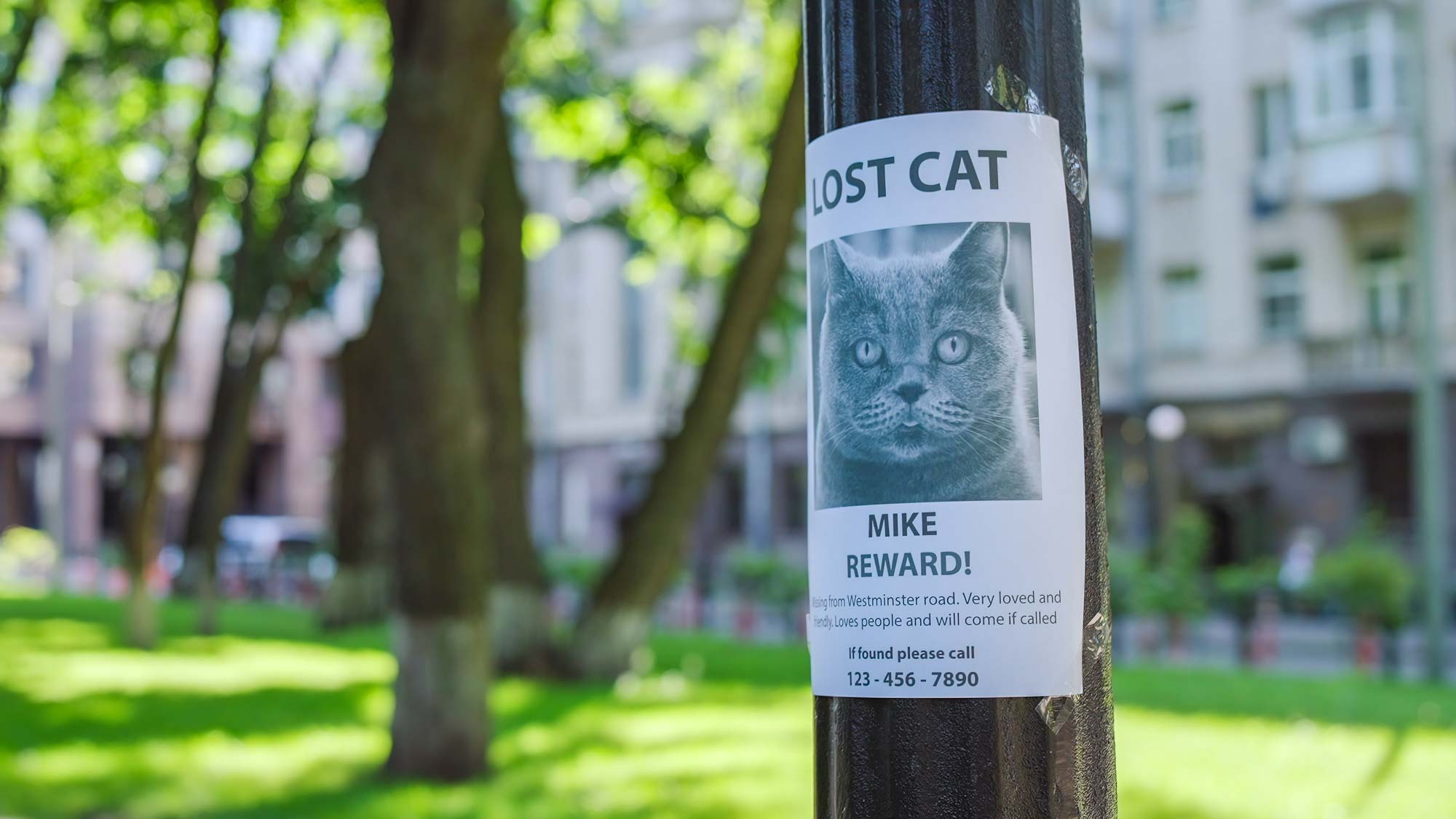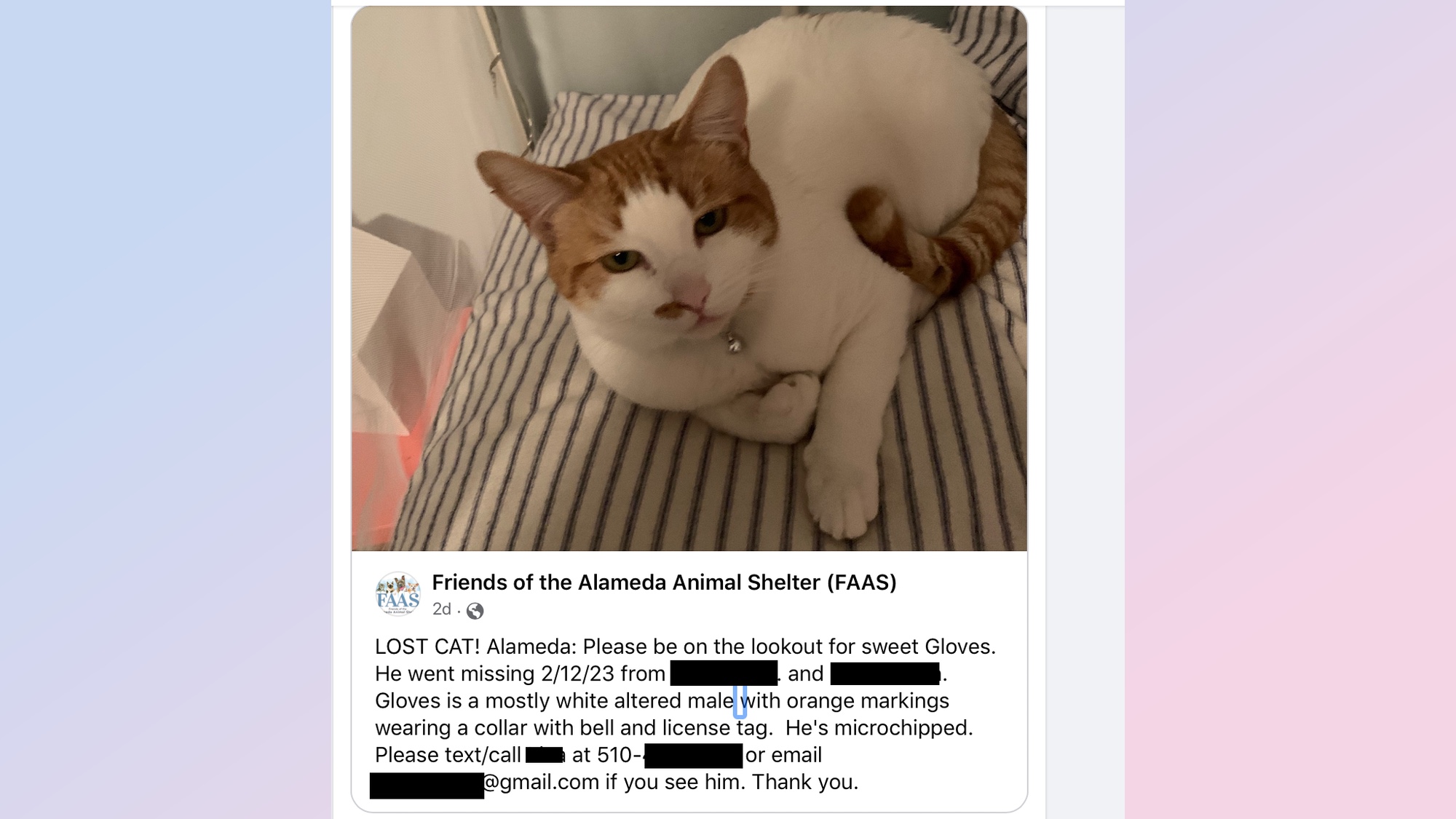I lost my cat — and then I got hit by this Google Voice scam
Scammers are hoping to take advantage of your misfortune — don't let them

Here at Tom’s Guide our expert editors are committed to bringing you the best news, reviews and guides to help you stay informed and ahead of the curve!
You are now subscribed
Your newsletter sign-up was successful
Want to add more newsletters?

Daily (Mon-Sun)
Tom's Guide Daily
Sign up to get the latest updates on all of your favorite content! From cutting-edge tech news and the hottest streaming buzz to unbeatable deals on the best products and in-depth reviews, we’ve got you covered.

Weekly on Thursday
Tom's AI Guide
Be AI savvy with your weekly newsletter summing up all the biggest AI news you need to know. Plus, analysis from our AI editor and tips on how to use the latest AI tools!

Weekly on Friday
Tom's iGuide
Unlock the vast world of Apple news straight to your inbox. With coverage on everything from exciting product launches to essential software updates, this is your go-to source for the latest updates on all the best Apple content.

Weekly on Monday
Tom's Streaming Guide
Our weekly newsletter is expertly crafted to immerse you in the world of streaming. Stay updated on the latest releases and our top recommendations across your favorite streaming platforms.
Join the club
Get full access to premium articles, exclusive features and a growing list of member rewards.
My cat bolted out of the house last week and failed to return in a timely fashion, causing great distress within our family. I'll spare you the ordeal and reveal that after 60 hours running around God knows where, the cat returned looking no worse for wear but with an expression that seemed to convey he thought all of us this was my fault.
Our purpose here is not to recount the process of how we tried to track down the cat or the mental roller-coaster of wondering if and when he would come back. Rather, it's to relate the tale of how before our lost cat returned to our house, scammers looking to take advantage of our misfortune appeared first. And maybe by doing so, I can help save you from inadvertently letting an anxious incident turn into a disastrous one.
After leaving out food for the cat — and probably feeding all the other neighborhood kitties — and scouring the surrounding streets for our lost rascal, we decided to call in some reinforcements. Our local animal shelter has a website where you can post information about missing pets, so that other animal lovers or good Samaritans can help reunite you with your lost pal.

Not long after posting information about our cat, my wife got a text message on our phone with some great news — someone thought they had come across the missing feline and wanted to help return him to us. That person had just one small request.
"I want to make sure you really are you claim to be," the text message said, noting that there are a lot of fakers out there. To prove that we were the genuine article, we were supposed to reply with a Google Voice verification code that would be sent to our phone. And then, the pet owner and cat reunion could resume.
I'd like to think that even if my wife and I didn't work in tech reporting, that odd request would have gotten our Spidey senses tingling. We promptly deleted the text, figuring out whoever sent it wasn't on the up and up.
The Google Voice scam
Our suspicions were well founded. This is a variation of the Google Voice scam — a scheme so well-established that there's a Federal Trade Commission page devoted to exposing it. Google Voice scams usually occur when you're trying to sell things online, though apparently it's been modified to now prey upon desperate people who've lost their pets.
Get instant access to breaking news, the hottest reviews, great deals and helpful tips.
Regardless of the scenario, the scheme is the same — the scammer contacts you, either wanting to buy what you're selling or return your post pet. They ask you to send them a verification code that's sent to your phone. Once you do, you will likely never hear from that person again, as they've just used that verification code to set up a Google Voice account using your phone number. From there they can operate from their faked phone number, conducting all manner of future scams.
Again, this seems like a pretty obvious ploy to see through. But consider the state of mind of someone who's just lost their pet. They're not likely to be thinking clearly when some seemingly good-hearted person contacts them with the promise of returning their pet unharmed.
It must be a popular scam, because four different people tried it on us that day within a few hours of us posting about our missing cat.
What you can do
Sadly, there's not a lot you can do about this scam attempt, other than knowing its out there and using caution when anyone contacts you with a request involving Google Voice verification codes. Ignore the text, block the caller as spam and shake your head about the sinful nature of man.
In the wake of our cat's disappearance, we got plenty of unsolicited advice about steps to prevent future unsanctioned walkabouts, with the most common suggestion being that we attach an Apple AirTag to our cat's collar. It should be noted that Apple strongly suggests you do not do this, as the AirTag is designed to track inanimate objects, not living things, and the company likely doesn't want to have to field calls from distraught pet owners when its tracker doesn't do something it was never intended to do. You'd be better off using a GPS-based tracker specifically designed for pets if you want to take that extra precaution, those such devices cost a lot more than the $29 AirTag.
We'll probably just be more vigilant about closing doors quickly when we head outside, lest our demonic furball decides to make another run for it. And we'll keep in mind should our cat disappear again that not everyone texting us is doing so with good intentions.
More from Tom's Guide
- This Amazon text message scam can steal your account — don't fall for this
- My wife almost fell for this Facebook Zelle scam — watch out
- Unpaid invoices are one of the easiest ways hackers can trick you — here's what happened to me
Philip Michaels is a Managing Editor at Tom's Guide. He's been covering personal technology since 1999 and was in the building when Steve Jobs showed off the iPhone for the first time. He's been evaluating smartphones since that first iPhone debuted in 2007, and he's been following phone carriers and smartphone plans since 2015. He has strong opinions about Apple, the Oakland Athletics, old movies and proper butchery techniques. Follow him at @PhilipMichaels.
 Club Benefits
Club Benefits






